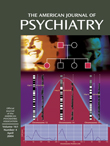The Brain and the Inner World: An Introduction to the Neuroscience of Subjective Experience
The authors describe their book as a “beginner’s guide to the brain.” One of their stated aims is to “familiarize non-specialists with the basic facts of how the brain ‘produces’ our subjective mental life.” This 342-page book, written by two neuropsychologists—one of whom is also a psychoanalyst—consists of a foreword by Oliver Sacks and 10 chapters, each of which seeks to provide an overview of the neurobiology of a particular aspect of the “mind.” The authors express an interest in bridging the gap between neuroscience and the realm of the subjective: “The really interesting things about psychology, such as consciousness, emotions, and dreams—topics from which neuropsychologists ‘shrank in horror’…less than a decade ago—are finally coming into the ambit of neuroscience.” Chapter titles include “Mind and Brain—How Do They Relate,” “Dreams and Hallucinations,” “Words and Things: The Left and Right Cerebral Hemispheres,” and “The Future and Neuro-Psychoanalysis.” A reference section and an index are included.
This is not a book for psychiatrists. For example, the neurology is too elementary, even for the medical student. Also, the contribution of psychiatry to the elucidation of the relationship between mind and body—the special province of the psychiatrist—is short-shrifted. Although the book serves as a fair guide to brain functioning per se, its presentation of the “inner world” is far too simplistic and fuzzy for anyone who has contemplated the nature of the subjective and the position of what Reichenbach aptly labeled the “most-privileged observer.” Serious epistemological flaws derive from the failure of the authors to define their terms, exemplified by their claim that neuropsychologists deal with “tangible, physical things,” whereas psychoanalysts are stuck with “immaterial” thought as the object of their inquiry.
Perhaps this book is best viewed as an exhortation to the growing segment of psychoanalysts who are not MDs to begin to learn something about the basic sciences.



